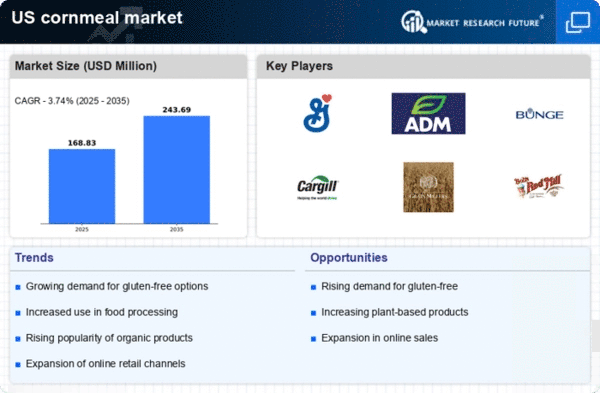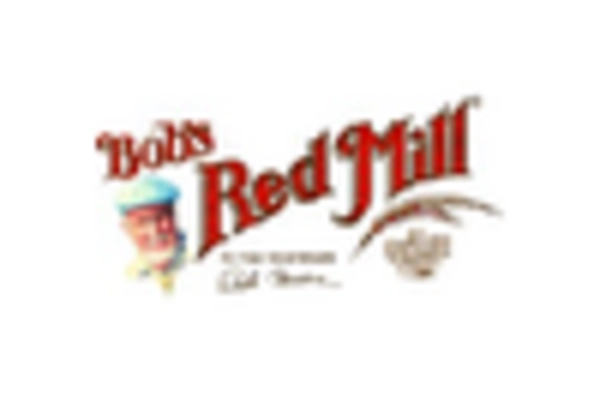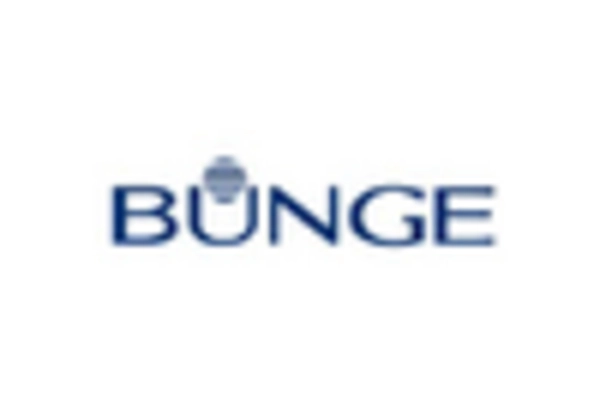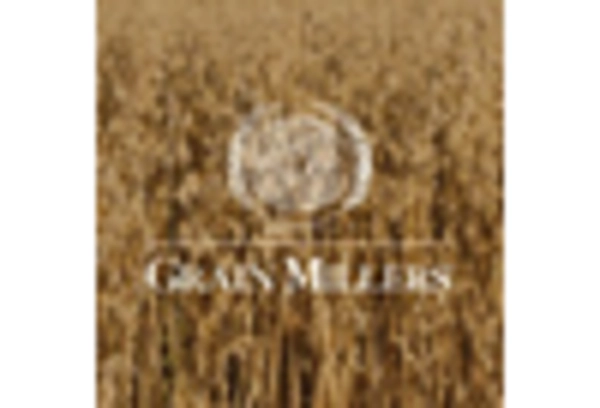Rising Popularity of Ethnic Cuisine
The growing interest in diverse culinary experiences has led to an increased consumption of ethnic foods, which often incorporate cornmeal as a staple ingredient. The cornmeal market is likely to benefit from this trend, as consumers seek out traditional dishes from various cultures, such as polenta and cornbread. In 2025, the ethnic food market in the US is projected to grow by around 5%, indicating a robust appetite for these flavors. This rising popularity of ethnic cuisine may drive demand for cornmeal, as it is essential in many traditional recipes, thereby enhancing the overall growth potential of the cornmeal market.
Expansion of Organic Cornmeal Offerings
The cornmeal market is witnessing a shift towards organic products, driven by consumer preferences for healthier and more sustainable food options. As awareness of the benefits of organic farming practices increases, more consumers are opting for organic cornmeal. In 2025, the organic food market in the US is expected to reach approximately $70 billion, with organic cornmeal contributing to this growth. This trend indicates that manufacturers are likely to expand their organic cornmeal offerings to meet consumer demand, thereby enhancing the overall market landscape. The cornmeal market may experience significant growth as more consumers prioritize organic products in their purchasing decisions.
Growing Demand for Gluten-Free Products
The increasing prevalence of gluten intolerance and celiac disease among consumers has led to a notable rise in demand for gluten-free products, including cornmeal. This trend is particularly pronounced in the cornmeal market, where gluten-free cornmeal serves as a viable alternative for those seeking to avoid wheat-based products. In 2025, the gluten-free food market is projected to reach approximately $7 billion in the US, with cornmeal playing a significant role in this growth. As consumers become more health-conscious, the cornmeal market is likely to benefit from this shift, as manufacturers expand their offerings to include gluten-free options, thereby catering to a broader audience.
Increased Use of Cornmeal in Food Processing
The cornmeal market is experiencing a surge in demand due to its extensive use in food processing. Cornmeal is a versatile ingredient utilized in various products, including baked goods, snacks, and breakfast cereals. In 2025, the food processing industry in the US is expected to grow by approximately 3.5%, which may positively impact the cornmeal market. As food manufacturers seek to enhance the texture and flavor of their products, the incorporation of cornmeal is likely to become more prevalent. This trend suggests that the cornmeal market will continue to thrive as food processors increasingly recognize the benefits of using cornmeal in their formulations.
Technological Advancements in Corn Processing
Technological innovations in corn processing are playing a crucial role in shaping the cornmeal market. Advances in milling techniques and processing methods have improved the quality and consistency of cornmeal products. In 2025, the corn processing industry is projected to grow by about 4%, which may positively influence the cornmeal market. These advancements not only enhance the efficiency of production but also allow for the development of specialized cornmeal products tailored to specific consumer needs. As technology continues to evolve, the cornmeal market is likely to benefit from improved product offerings and increased consumer satisfaction.
















